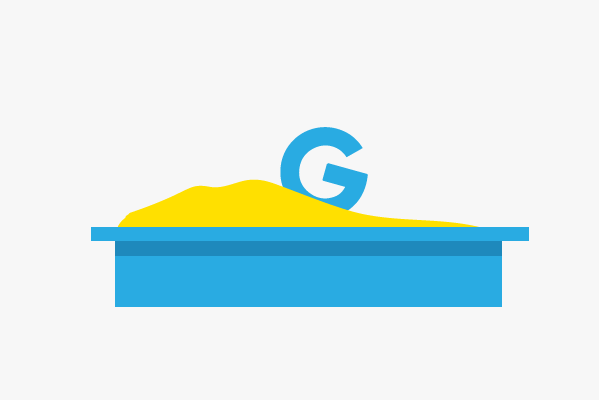Many new businesses that are starting off in the digital marketplace want to know ‘does domain name affect SEO’? To be fair, that’s a legit concern. As a new business looking at SEO, you would want to ensure that you make no mistakes while starting off. Particularly with something like domain names, which are mostly a one-time purchase.
Moreover, you might have heard that domain names did play a critical role in SEO for a long time. But the rules have changed. A lot. Now, domain names might not directly affect SEO.
Especially if we are talking about brand new domains. However, it does not mean that domain names have no role to play in the larger scheme of things. They absolutely do. It’s just not going to impact the ability of the website to rank.
That sounds confusing, doesn’t it? We will explain. Stay with us as we unravel the importance of domain names for digital marketing.
What is a domain name?
Let’s clear the technical bits first. A domain name is your website’s address on the World Wide Web. It is the front end address (that you see in the browser) that points a user towards an IP address, which is the real address for a website. For instance, our domain name is www.rockstarmarketing.co.uk.
The subdomain is www.
The country-level domain is .co.uk, since we are a UK-based company. If we were based in Australia, it would have been .au instead. However, the actual IP address that hosts our site could be something like ‘123.123.12.34’. That’s not very user friendly. Hence, domain names are used instead.
Does domain name affect SEO – It did until a decade ago

Until a decade ago, SEO was different. Domain names with keyword phrases were easier to rank. Businesses would pick keyword-rich domain names. Google considered these as a ranking factor. This made it easier for these websites to rank, even if their content and backlink profile was poor.
Here’s an example. Let’s say that you are an interior designer in Birmingham. You’d speak to a Birmingham SEO agency. They’d do some keyword research. Then they’d identify the best keywords for your business. Let’s assume that the keyword that they narrow down on is ‘best interior designer in Birmingham’.
They’d then check whether the TLD or Top Level Domain for that keyword is available. If it was available, these were called ‘Exact Match Domains’ or EMDs.
If .com, .net & .org were unavailable, they’d check country-level domains. If ‘Bestinteriordesignerbirmingham.co.uk’ was available, they’d register it. Then they’d create a lot of content for that keyword. Boom. The website would rank for that keyword. It was simple, wasn’t it? There were even tools that let you find Exact Match Domains.
Then Google realised that businesses and Blackhat marketers were jacking the search results. Domain names that had no real value were flooding the search pages. So, they reduced the significance of domain names in ranking.
What is the significance of domain names then?
Domain names are a lot more than an address for your website though. They are a virtual representation of your organisation on the Internet. People will associate your brand with the domain name and vice-a-versa. So it’s important that you pick domain names that are an extension of your brand.
Here are some key factors to consider if you’re starting off from scratch and looking to register a new domain name.
Keep it simple – Domain names must be easy to remember and type. So clean and short domain names are ideal. They do not need to feature keywords. But if you can include keywords and come up with someone short and simple, go for it. An example is ‘bestplumbers.com’. That’s a domain name that’s easy to read and remember. It also involves a great keyword, ‘best plumbers’.
But it does not always have to be representative of what you do. Amazon is a prime example, as are Twitter, Facebook & Netflix.com.
Watch out for phonetics – Good domain names have no phonetics involved either. Teacherstalking.com is a great domain name. However, you can easily misread it as ‘teacher stalking’, instead of ‘teachers talking’. There are many excellent domain names rendered unusable because they failed to foresee a potential misread.
Keep it clean – Numbers and hyphens reduce the readability of the domain. Avoid them unless absolutely necessary.
Here are some great domain name generators if you seek some inspiration.
Does domain name affect SEO – 2 Possible Scenarios in which it does
Things are not always binary in the world of SEO. So if you have wondered does domain name affect SEO, here are three scenarios in which it could.
#1 – You are using an expired/dropped domain

Google did the smart thing by attributing more importance to a domain’s credibility than mere keywords. There are three things that determine credibility.
- Domain age – A domain name that’s older is considered more authoritative. This is debated. But here’s what John Mueller said, ‘New domains may be dampened for a few months to help fight spam. Old domains may positively correlate to better rankings due to other factors‘. That’s the quintessential Google way of saying that newer domains will be sand boxed. More on this later.
- The Backlink profile – Quality backlinks pointing to the domain from authority sites.
- Anchor link profile – No spammy keyword anchors pointing to the domain.
SEO Marketers are smart creatures. They found a way to use this in their favour. Call it an exploit or a loophole, but there’s a way to use domain credibility to your advantage. That’s by leveraging the potential of dropped or expired domains.
What are dropped domains?
Dropped or expired domains are old domains that the domain owner did not renew. Maybe the business shut down, or they just forgot to renew it on time. Yeah, that happens too. Could also be that they were a domain reseller and just decided to let it go.
Sometimes these old domains can have tons of credibility. Imagine a domain that’s 15-years old. One that has backlinks from top websites like Wikipedia, NY Times, BBC, & Moz to name a few. There are no junk backlinks pointing to it. The anchor profile is squeaky clean too. A domain like this can give you an unfair advantage over a competitor with a brand new domain. Why? Because of the Google Sandbox and the backlink profile.
What is the Google Sandbox?

The Google Sandbox is a filter that prevents brand new websites from ranking on search. That’s because Google believes that a new website lacks authority and trust. There’s a lot of debate whether the Google Sandbox exists. As of now, SEOs generally believe that it does. An aged domain cuts through the sandbox because it’s old.
Then there are backlinks. Authority backlinks can take forever to gain. Some SEO companies spend a year or two aggressively building links. But even then they may be unable to gain the links that can come with quality dropped domains.
However, relevant & clean dropped domains are pricey. Sometimes, they sell for as much as £10,000. But, it does give you an edge and may well be worth it. There’s a caveat though. There’s no guarantee that it may work. Sometimes, the dropped domain may have a penalty. That’s why you need a skilled SEO team who can help you analyse a dropped domain.
At Rockstar Marketing, we frequently use dropped domains for our clients. But we spend a good bit of time analysing the domain from head to toe. We only pick domains that are clean and completely worth it.
#2 – You are running Google ads and not really aiming for organic search
Your domain name can affect click-through rates in Google ads. In Google ads, click-through rates are dependent on a variety of factors. One of these could be keywords in the domain name. An example is a user who wants to find a web designer in Birmingham. A domain with the keywords ‘web designer Birmingham’ can have a higher CTR than a brand domain name.
That’s because it involves two things. A keyword that matches the search term, and the searcher’s location. It’s just one of the many factors though. So we wouldn’t recommend choosing keywords over brand-ability. Not unless it’s a super high volume keyword and you have an EMD.
Should you change your existing domain name for SEO?
Sometimes SEO can be painstakingly slow. A business in this position will try to evaluate possible reasons for the sluggish progress. Then they wonder, ‘does domain name affect SEO’? The next question is, ‘Should we try changing our domain name’?
We generally don’t recommend changing the domain name. Particularly, if your SEO team has done a fair bit of work on the content and backlinking already. That’s because mostly the domain name has little to do with your SEO rankings.
It’s generally a bunch of other factors that are not in the right place. However, the domain name might need to be changed in one of the following scenarios.
- There’s a manual as well as algorithmic penalty on the domain. You have tried to appeal and revoke the penalty, but have been unable to. Waiting for a few months or years to see Google revokes the penalty is not an option.
- There’s a possible phonetic element and your customers always get your domain name wrong.
- You picked a hyphenated version of the domain name because the non-hyphenated one was unavailable. However, it has just become available. Non-hyphenated domains are always better.
- A domain squatter acquired your brand domain and was quoting an absurd price all this while. But they just gave up or forgot to register the domain.
- Sounds like a spammy website (you got it wrong the first time).
Final thoughts
An SEO friendly domain name is not limited to using keywords. There’s so much more to it. It needs to be memorable, brand-relevant, short & clean. Everything else is secondary. If you can find a TLD that has your primary keywords, that’s great.
We’d still attribute more importance to the other factors though. If you are unsure about how your domain name is affecting your SEO, speak to us now.



0 Comments